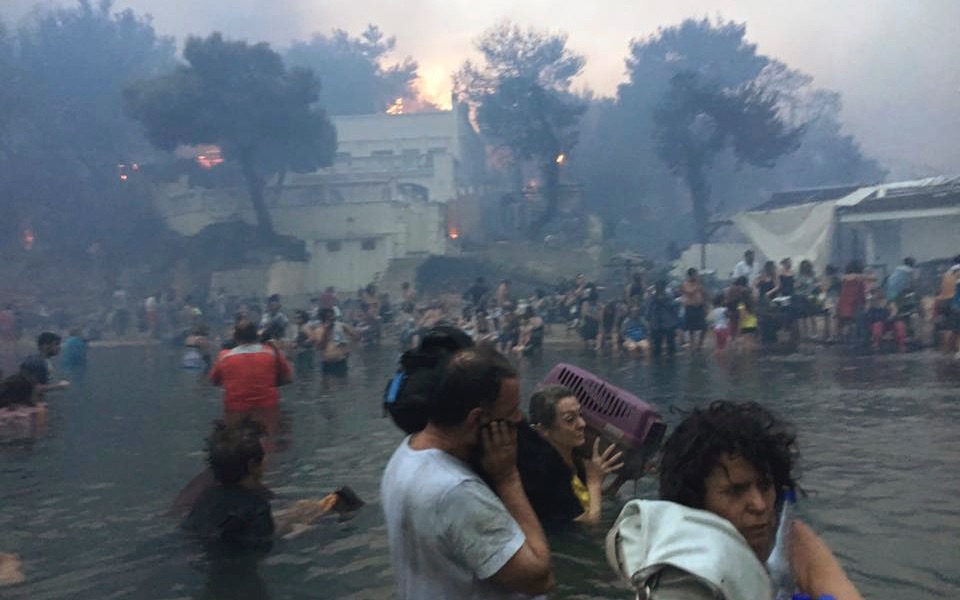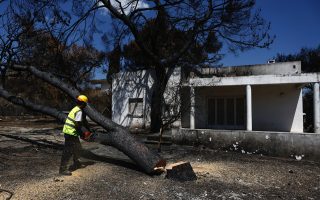When tragedy is seen through an ideological prism

The first public opinion poll to come out after the summer break provides worrying evidence of indifference and fatigue in a sizable part of Greek society.
On questions regarding the deadly east Attica wildfires in July, 72 percent of those surveyed said they saw the government’s management of the incident as “probably or certainly negative” while 17 percent viewed it as “probably or certainly positive.”
Among supporters of the opposition New Democracy party, negative replies comprised the vast majority, with 90 percent of ND-supporting respondents saying that they took a dim view of the leftist-led government’s response to the disaster. Among respondents who are SYRIZA supporters, however, a negative view was expressed by just 56 percent, while 37 percent saw the government’s response as “probably or certainly positive.”
When questioned who they would vote for if elections were held now, the responses showed that the conservatives’ lead over SYRIZA remains at a steady 9.5 percent, without the government’s handling of the fire appearing to affect SYRIZA’s popularity in any significant way. If anything, it has grown.
What these figures tell us is that ideology affects perceptions, even when it comes to a tragedy like the wildfire that claimed 99 lives in Mati. Supporters of the opposition, therefore, are angrier about the magnitude of the disaster than SYRIZA voters, who are guided by different moral principles.
Is it that the tragedy is still quite fresh and hasn’t quite sunk into people’s minds or are Greeks only concerned about their own skins? There are compelling arguments to support both points of view. Still, neither explain why many voters are convinced that there are no great differences between the different parties in and around the center of the spectrum and that the deaths of nearly 100 people could not have been prevented no matter who was in government.
Loss of respect for politicians, reducing everything to the lowest common denominator and watching the bad prevail over all efforts at improvement due to fear of the political cost are constants in Greece’s political history.
The fact that common sense has flown out the window, that lies are constantly being presented as truth and, mainly, the public’s refusal to inform itself responsibly of the facts (however trying this has admittedly become), lead to the creation of different parallel realities. This is what allows high-ranking government officials to say things like the victims are preventing a more rational view of things or that the Mati disaster was simply a matter of bad luck – and get away with it.





